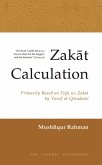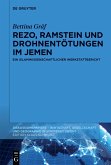Al-Ghazali made seminal contributions to the field of ethical economic thought. Though he dedicated many chapters in his encyclopaedic I¿ya' Ulum al-Din (The Revival of Religious Sciences) to what he considered just and Shari'a-based economic conduct in (Muslim) society, this specific aspect of his corpus has been largely overlooked in Western scholarship. This book aims to analyse and revive al-Ghazali's little studied economic teachings by emphasizing his economic philosophy and its correlation between Shari'a's moral law and the tradition of täawwuf, situating his thought within the context of modern economic theories.
The scholarly ignorance of his economic contributions goes hand in hand with a claim made by several Western scholars (e.g., J. Schumpeter) that classical Islamic scholarship did not offer any significant development in the domain of economic thought in what was known in Europe as the Middle Ages-a claim that scholars like Ghazanfar and Islahi, attempted to refute. This book delves into an analysis of al-Ghazali's theoretical accounts and his economic philosophy as part of his overall ethics of happiness, looking closely at select passages from his work in order to position them at the intersection of two domains within the framework of classical Islamic economic thought, namely täawwuf or Sufi-mystical thought and Shari'a law.
This work does not assume that al-Ghazali anticipated modern trends of Western economics; however, by merging the necessity of kasb (acquisitions of wealth) and the importance of zuhd (renunciation of the worldly endeavours) as equal components in the context of the science of the hereafer ('ilm ¿ariq al-akhira), he presented the culmination of ethical economic thought in classical Islamic tradition, influencing later Muslim scholars. Hence, in this rather specific reading of al-Ghazali's economic philosophy, he conceived of an economic analysis that was founded upon ethical teachings, an endeavor that should be ultimately regarded as a technology of self-examination.
The scholarly ignorance of his economic contributions goes hand in hand with a claim made by several Western scholars (e.g., J. Schumpeter) that classical Islamic scholarship did not offer any significant development in the domain of economic thought in what was known in Europe as the Middle Ages-a claim that scholars like Ghazanfar and Islahi, attempted to refute. This book delves into an analysis of al-Ghazali's theoretical accounts and his economic philosophy as part of his overall ethics of happiness, looking closely at select passages from his work in order to position them at the intersection of two domains within the framework of classical Islamic economic thought, namely täawwuf or Sufi-mystical thought and Shari'a law.
This work does not assume that al-Ghazali anticipated modern trends of Western economics; however, by merging the necessity of kasb (acquisitions of wealth) and the importance of zuhd (renunciation of the worldly endeavours) as equal components in the context of the science of the hereafer ('ilm ¿ariq al-akhira), he presented the culmination of ethical economic thought in classical Islamic tradition, influencing later Muslim scholars. Hence, in this rather specific reading of al-Ghazali's economic philosophy, he conceived of an economic analysis that was founded upon ethical teachings, an endeavor that should be ultimately regarded as a technology of self-examination.
Dieser Download kann aus rechtlichen Gründen nur mit Rechnungsadresse in A, D ausgeliefert werden.









